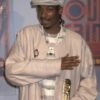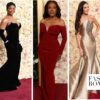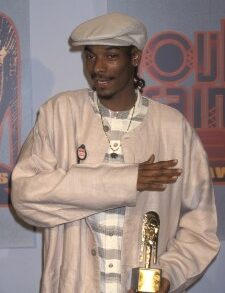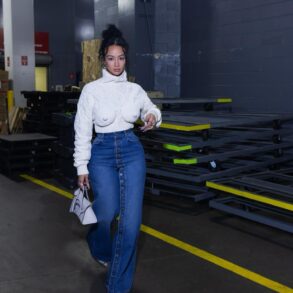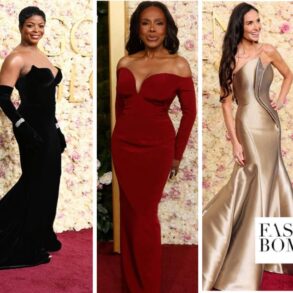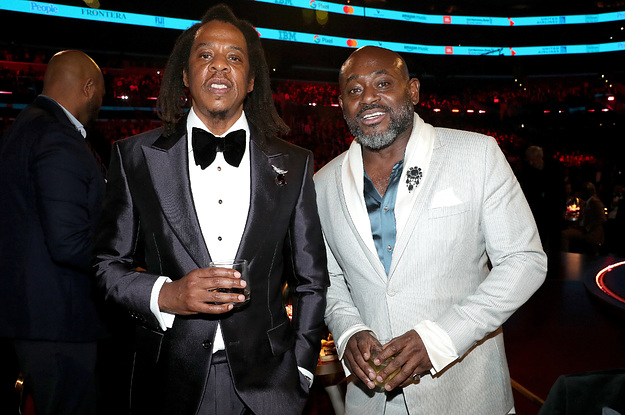
Thinking back during your time as Kid N’ Play’s road manager at 21, what are your thoughts on artists like Lil Baby and others having to cancel tour dates despite having massive followings? What’s the X factor in terms of getting people in seats?
Most of these songs that are coming out are features, and these features require other artists to be on them. The artists are not necessarily investing in production to give the fans a show. So they’re basically just getting a version of the song that may not even have the other person who’s on it in a feature, and that’s becoming very prominent.
The other thing I would say is that festival culture has become the new thing. Like I’ll buy a ticket to see everybody, and it’s a better value, and all the acts are there. There’s so many Rolling Louds now—I’m gonna get my fix there. So I think it’s a combination of all those things that’s leading to this.
I was revisiting one of the stories from your book, The Tanning of America, about “Jay Z Blue” and how it got left on the cutting-room floor, but you knew it was a great idea that just wasn’t completed. How many other moments like that have you had in your career, and are there any that immediately come to mind?
I would say that was the biggest one. I would also say that as we were building footwear around artists—we did the S. Carters, the G-Units, the ice creams with Pharrell—Reebok got sold during that time, and I don’t think we got a chance to complete that thought either. It was early and it was right and I felt like there was so much more we could have done, but we didn’t get a chance to do it because of Reebok getting sold.
[Jay-Z] would tell you the same thing, because the hardest thing to do with color is first to find a unique color and then get it on a Pantone chart, and that’s what we did. We invented the color, and that’s hard. And then getting it to be officially on a Pantone chart is extremely difficult because you have to time it right, and that’s a global uniformly accepted standard for color. The purse qualifies as a new color and then [to] be able to make it on that chart—they only publish it once every five years. That’s difficult and we got it all right, and then it didn’t happen. And then Cadillac did a deal with us, and we made it an option for an upgrade for Cadillac Escalade. We got that done. There is a Jay-Z Blue Cadillac Escalade that exists.I have no idea where it is; you can find it online. Jay-Z came out to the Detroit Auto Show in whatever year that was, 2003, 2004. He walked out onstage at the Detroit Auto Show with a Jay-Z blue car behind him.
Mentorship is such a big part of United Masters and the programming you all do. What’s been one of the most valuable pieces of advice you’ve received from a mentor that you now use with mentees of yours?
I’ve learned a lot from Jimmy Iovine and everybody knows that everybody. And it was really understanding the value of patience because sometimes in a marketplace, everybody’s running towards the same thing and you look at that acceleration and that excitement and then you get hindered by that. In fact, you may change directions on what you’re doing because all of a sudden you see noise happening somewhere else. He used to always say this line, “Stick to your knitting,” and stick to your knitting was like— don’t know if you ever went to your grandmother’s house, and she’d be knitting something and it’s small. Then you come back three months later and it’s a full duvet, and you’re like, “How the hell did it get so big?” She stuck to her knitting, and that’s what happens with focus. So don’t get distracted by what’s going on.
How do you think United Masters and the mentorship program that you have provides artists with a strong base to help them build something sustainable?The truth of the matter is it’s not only hip-hop music that’s becoming digested in a fast-food way—it’s all music. I would say probably the genre of music that has held on the longest to not being subject to that is country music, but certainly pop music, by nature, is defined by that. It’s popular, and the speed of popularity is only getting faster. Getting popularity is getting faster and losing popularity is getting faster; they go hand in hand. So my whole thing with artists is like, the most important thing you can do in a marketplace like that is build a brand. Stand for something, because the truth of the matter is that people are gonna gravitate towards something that they can trust. So whether it be the music you make and then the merch that you make or building a fan base and then how you cater to that fan base, that should be first and foremost. Not trying to go and get as many fans as possible, but really servicing your fans with content, products, stories that they expect and want from you. And one of the artists I have a lot of respect for is Russ. Russ and Brent Faiyaz. Russ is not with [United Masters]; Brent is, but my respect level for them is through the roof because they built a loyal fan base.
They didn’t go around chasing things just because, and those are independent acts. A signed act that I think has done a great job of building a fan base and emaining true to who he is is Future. Future still is Future, making No. 1 records, making smashes, staying in the pocket, knowing who his fans are, knowing who he is. He built an unbelievable brand.
You said a few years ago that “if Drake went independent, the music industry would be done.” Looking at the landscape today, do you think major acts like him, J. Cole, or Kendrick need the label system?
No, they don’t need the label system at all. They know that, the label system knows it, and the artist knows it. What did the label do? They gave them money, but outside of the money, the system hasn’t done anything. I’ve always said that signing a record deal is the most expensive loan you can sign, and the reason why I said that line that if Drake was to go independent, it would change the music business is because everybody would realize they don’t need them. When you see the success of Brent, the success of Russ, the success of a lot of these artists from Africa, this is happening organically. This is happening through social media, playlists, and just their overall presence. This is not being driven by a record company system; it’s not being driven by radio; it’s not being driven by systems that the record companies control.
Usher is an independent act right now about to play the Super Bowl. Usher said to me, “Steve, it’s very important for you and the independent music business that I’m the first independent actor ever to play the Super Bowl.” And I said, “You’re absolutely correct.”
Looking ahead to the next 50 years of hip-hop, you’ve watched Kendrick Lamar, Drake, and J. Cole grow from the beginning of their careers. With your understanding of the “Big 3” dynamic, do you think rap will have another Big 3, or is that era over?
You’re calling them the Big 3, but it’s not because of their size. They’re the big three because they can rap their ass off. They’re not the big three because of sales. It’s not like they’re the top three sellers. They’re the top three rappers. They’re the top three bar-spitters. So just look at it that way. So from a rapping perspective, yeah, I think there will always be a big three. And if you want to put Rick Ross in it, there’s a big four. I can’t tell you that Kendrick Lamar is a much better rapper than Rick Ross. I don’t believe that.
This post was originally published on this site be sure to check out more of their content.

